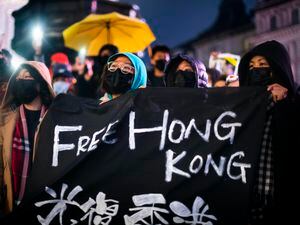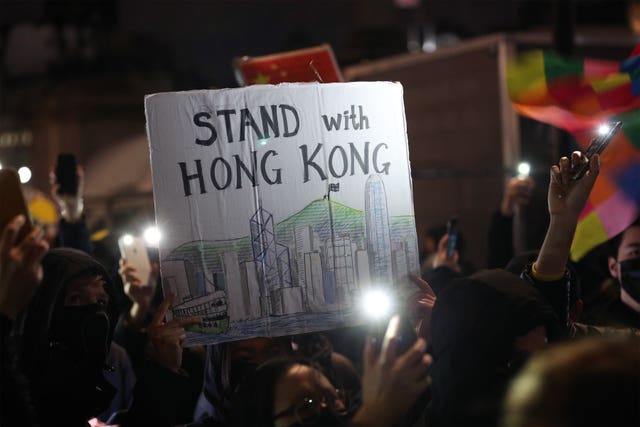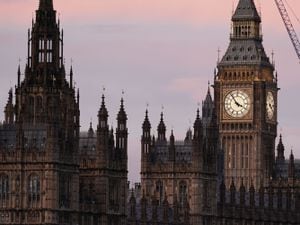Outgoing Hong Kong consul-general: Security law ‘stifling dissent’
Beijing has repeatedly rejected criticism of the national security law.

Hong Kong is no longer the city people “know and love”, its outgoing British Consul-General said.
Andrew Heyn has held the role since September 2016, with the last year of his posting coinciding with increasing strain between UK and Chinese relations over the former British colony.
A controversial national security law was imposed on Hong Kong by Beijing and a move to disqualify pro-democracy legislators contributed to what Foreign Secretary Dominic Raab called the “most concerning period in Hong Kong’s post-handover history” last month.
The Sino-British Joint Declaration guaranteed that, for 50 years from the handover by the UK in 1997, the Hong Kong special administrative region would enjoy a high degree of autonomy.
Beijing has repeatedly rejected criticism of the national security law and has accused the UK of a colonial-style approach to Hong Kong’s affairs.
Mr Heyn told the South China Morning Post of a “stifling of dissent” in Hong Kong, adding the consulate had struggled to talk to opposition politicians who feared private discussions would land them in hot water.
He said: “This is why we are so worried about the national security law on the stifling of dissent.
“We are very careful to make sure we are not compromising any of our contacts. We are saying ‘we are here if you want to talk, but we understand that if you don’t’.
“I personally feel it is not the Hong Kong that people know and love.”

Following the imposition of national security legislation, giving Beijing sweeping powers to curtail protest and suppress dissent in the territory, the UK Government said it would offer a route to citizenship for those with British National (Overseas) status.
Around three million people are thought to be eligible for BNO status and there are around 366,000 passports in circulation.
And Mr Heyn called it “the biggest change in British immigration policy”, but noted little opposition in the UK to the proposals.
However, he also appeared optimistic about the future, telling the paper: “I would leave with a very heartfelt hope that by the time my successor leaves, he or she will be talking about relationships similar to the ones I arrived at.”





